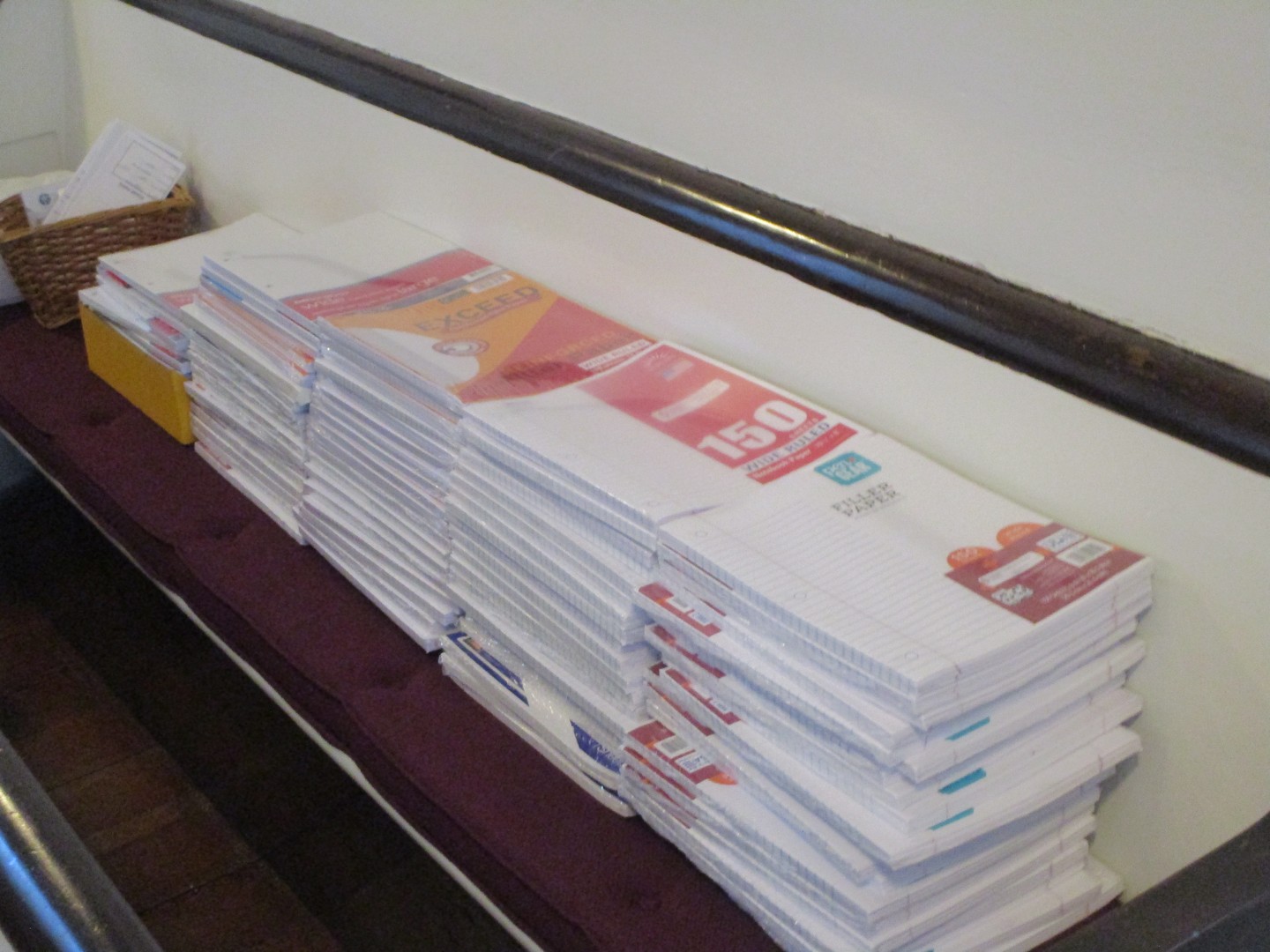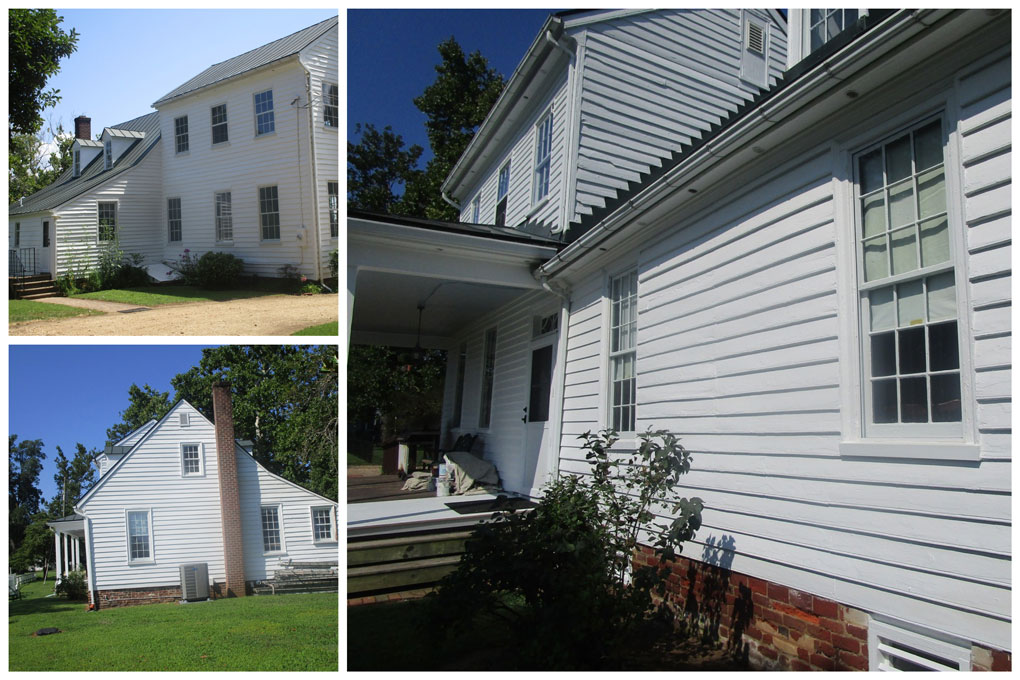Click here to view in a new window.
2023 Sun July 30
Bulletin, Pentecost 9, July 30, 2023
Click here to view in a new window.
A Union Soldier’s take on Solomon’s Prayer (Old Testament reading this week 1 Kings 3:5-12)

An unknown civil war soldier wrote this eloquent testimony:
"I asked for strength that I might achieve;
"I was made weak that I might learn humbly to obey.
"I asked for health that I might do greater things;
"I was given infirmity that I might do better things.
"I asked for riches that I might be happy; I was given poverty that I might be wise.
"I asked for power that I might have the praise of men; I was given weakness that I might feel the need of God.
"I asked for all things that I might enjoy life; I was given life that I might enjoy all things. I got nothing that I had asked for, but everything that I had hoped for.
"Almost despite myself my unspoken prayers were answered; I am, among all men, most richly blessed.
"So the Bible says that It pleased the Lord that Solomon had asked this."
Visual Lectionary Vanderbilt – Pentecost 9 – Sunday July 30, 2023
Click here to view in a new window.
Summer, 2023 outreach

Caroline’s Promise – 95 packs of notebook paper were donated to the Caroline’s Promise school supply distribution, which was held at Caroline Middle School at the end of July

Jamaica – We donated enough school supplies for each student at the Victoria School in Linstead, Jamaica, 10 categories of supplies, 3,000+ items – drawstring backpacks, sharpeners, pencils, pens, toothpaste, toothbrushes, erasers, crayons, pencil cases, rulers, Also 6 tablets were contributed. Finally, St Peter’s was able to donate seven used computers to the school, along with keyboards and monitors to use with each computer. We collected $2,355 at the end of June for the computers and remaining school supplies.
Videos, Pentecost 9, July 30, 2023
1. A brief look at the beautiful Rapphannock River on Sunday
2. “Shall We Gather at the River” – Opening Hymn
3. Romans reading – Chapter 8 verses 25 -39
4. Gospel and Sermon – Rev. Tom Hughes
5. “Seek ye First”
6. “Be Thou My Vision”
The Parish House’s new clothes
On May 1, we received news that our Diocesan grant for painting the Parish House had been approved. The Vestry applied for a Peter J. Lee Small Church Revitalization Grant from the Diocese of Virginia. At its last meeting, the Diocesan Executive Board voted for us to receive the $5000 grant that we requested.
The letter from the Bishop included these lines:
“As the Church we are called at all times and in all places to do God’s work in the world, and PJL Grants enable us to encourage and support one another in this vocation. Congregations throughout the Diocese of Virginia celebrate the vision and spirit that has inspired your grant project, and we all look forward to hearing of your project’s results.
I send my blessings to you for the work that you do and remain,
Faithfully yours,
The Rt. Rev’d E. Mark Stevenson Bishop of Virginia
As of July 23, 2023, the Parish House was in the process of receiving new paint. Here are works in progress. First two pictures are a before and after:


William Wilberforce (1759-1833), man of faith, abolitionist

We remember Wilberforce on the date of his death July 29, 1833
The rock-like faith of Peter is at the heart of William Wilberforce’s crusade against the slave trade. England was exporting 50,000 Africans to America a year in his life time. Wilberforce’s life is the subject of the movie “Amazing Grace” (2006). You can see the trailer here. There is also a short 3 minute introduction to Wilberforce here.
Wilberforce was an English politician, philanthropist, and a leader of the movement to abolish the slave trade. He was a political activist and a man of strong faith.
By the late 1700s, the economics of slavery were so entrenched that only a handful of people thought anything could be done about it.
Physically he wasn’t imposing – he was less than 5 1/2 feet tall and was sickly for most of his life. He enjoyed the plush lifestyle of his early life. However, after leaving religion he came back to Christianity through the evangelical faith of John Newton, who penned the hymn “Amazing Grace”. He urged him to use his parliamentary position to advance his causes. He attracted a number of friends, including future prime minister William Pitt. Helping him were his oratorical skills though he wasn’t the best strategist.
He won seat in Parliament in 1780. Under the influence of Thomas Clarkson, he became absorbed with the issue of slavery. Later he wrote, “So enormous, so dreadful, so irremediable did the trade’s wickedness appear that my own mind was completely made up for abolition. Let the consequences be what they would: I from this time determined that I would never rest until I had effected its abolition.” Although opposed to slavery itself, the abolitionists wisely thought that it would be easier to abolish the trade before tackling slavery itself.
Wilberforce was initially optimistic, even naively so. He expressed “no doubt” about his chances of quick success. However, bills introduced were defeated in 1791, 1792, 1793, 1797, 1798, 1799, 1804, and 1805.
When it became clear that Wilberforce was not going to let the issue die, pro-slavery forces targeted him. He was vilified; opponents spoke of “the damnable doctrine of Wilberforce and his hypocritical allies.” The opposition became so fierce, one friend feared that one day he would read about Wilberforce’s being “carbonated [broiled] by Indian planters, barbecued by African merchants, and eaten by Guinea captains.”
It would take twenty years of pleading, educating, demonstrating, and maneuvering before William Wilberforce would emerge victorious—in 1807. Helping him was the news of a slave uprising in Haiti. A year after Wilberforce’s death (in 1833) all the slaves of the Empire were declared to be free, almost 30 years before they would be set free in the United States, and over fifty years in Brazil.
At one point in the early 1790s Wilberforce actually had enough votes to pass his bill of abolition, but on the night of the vote (Parliament’s business sessions often did not begin until early evening) many of his supporters were attending a comedy at the theater, and thereby the bill failed for lack of votes.
